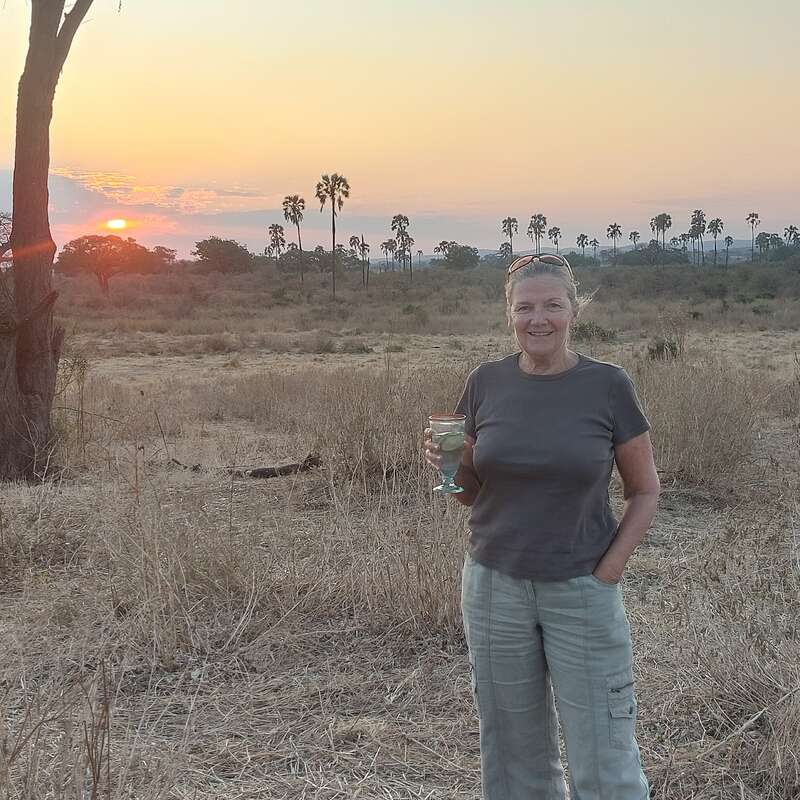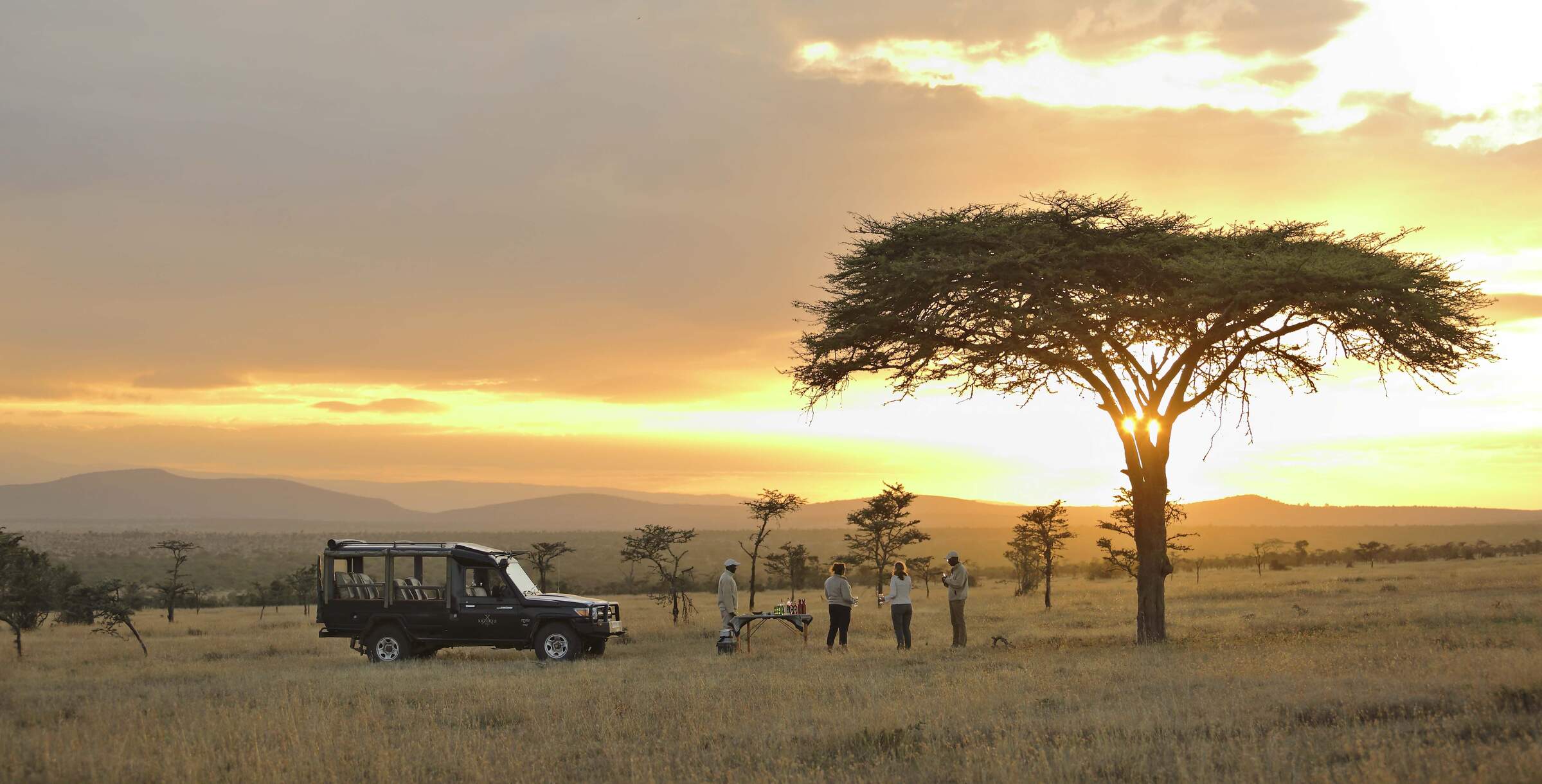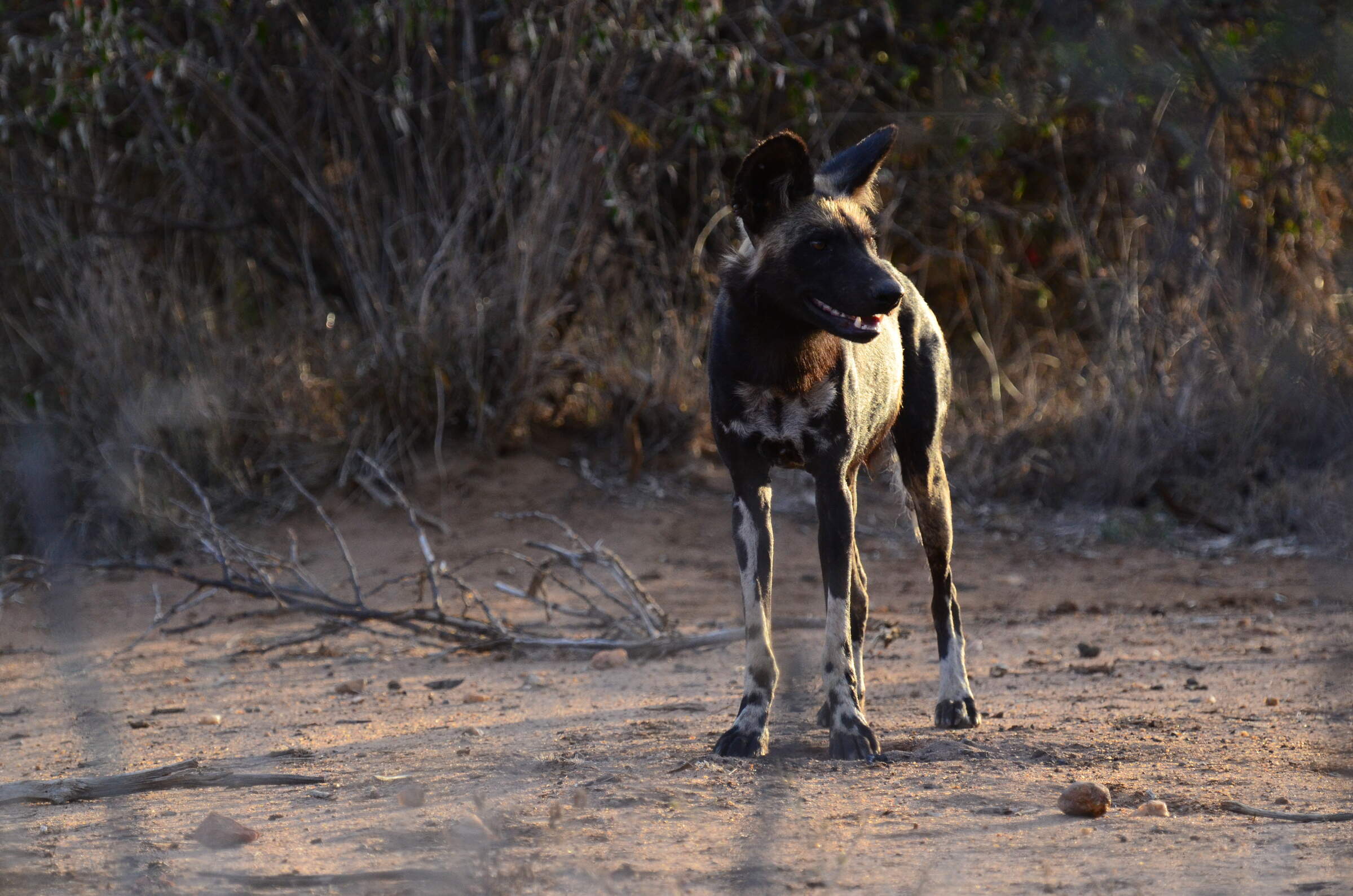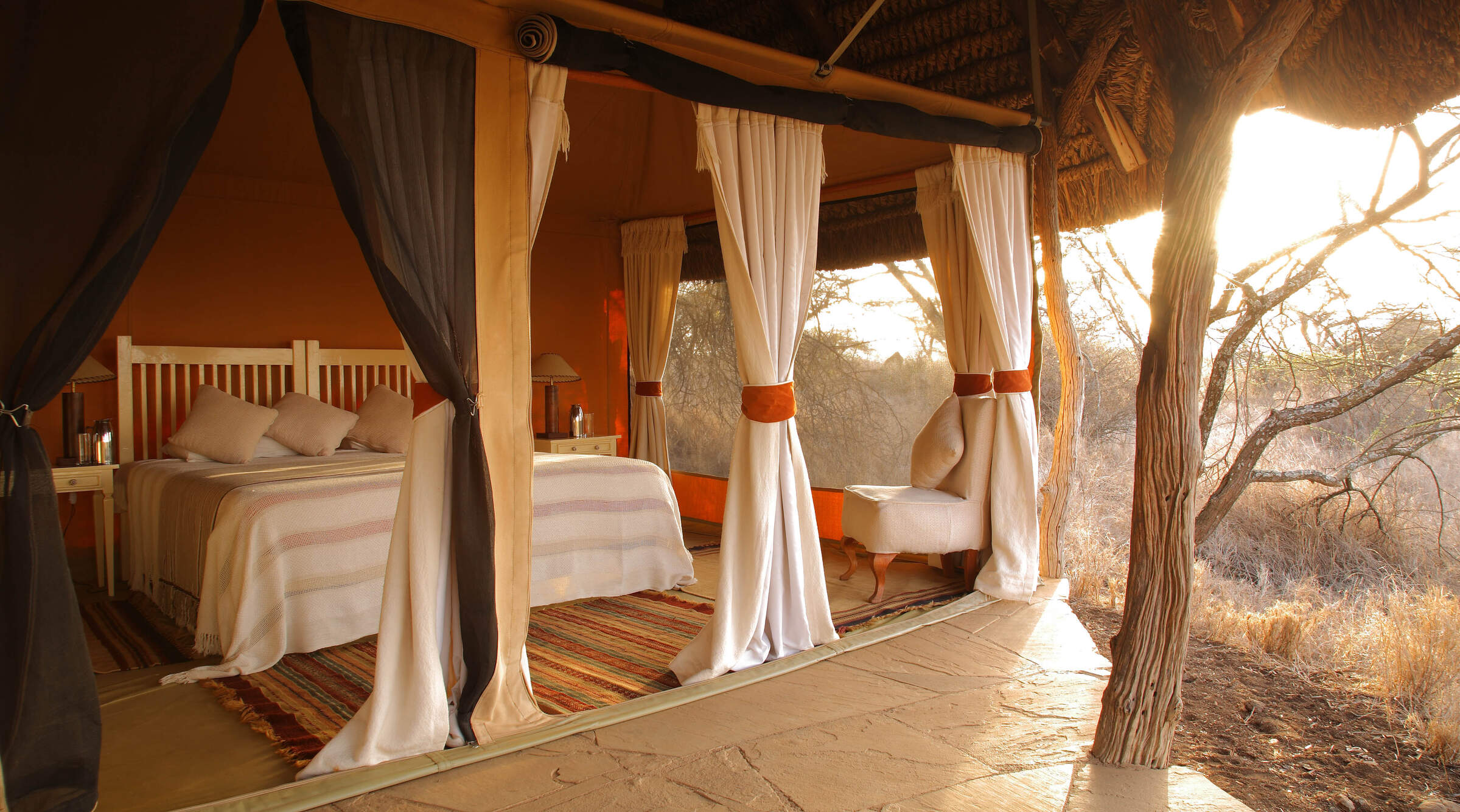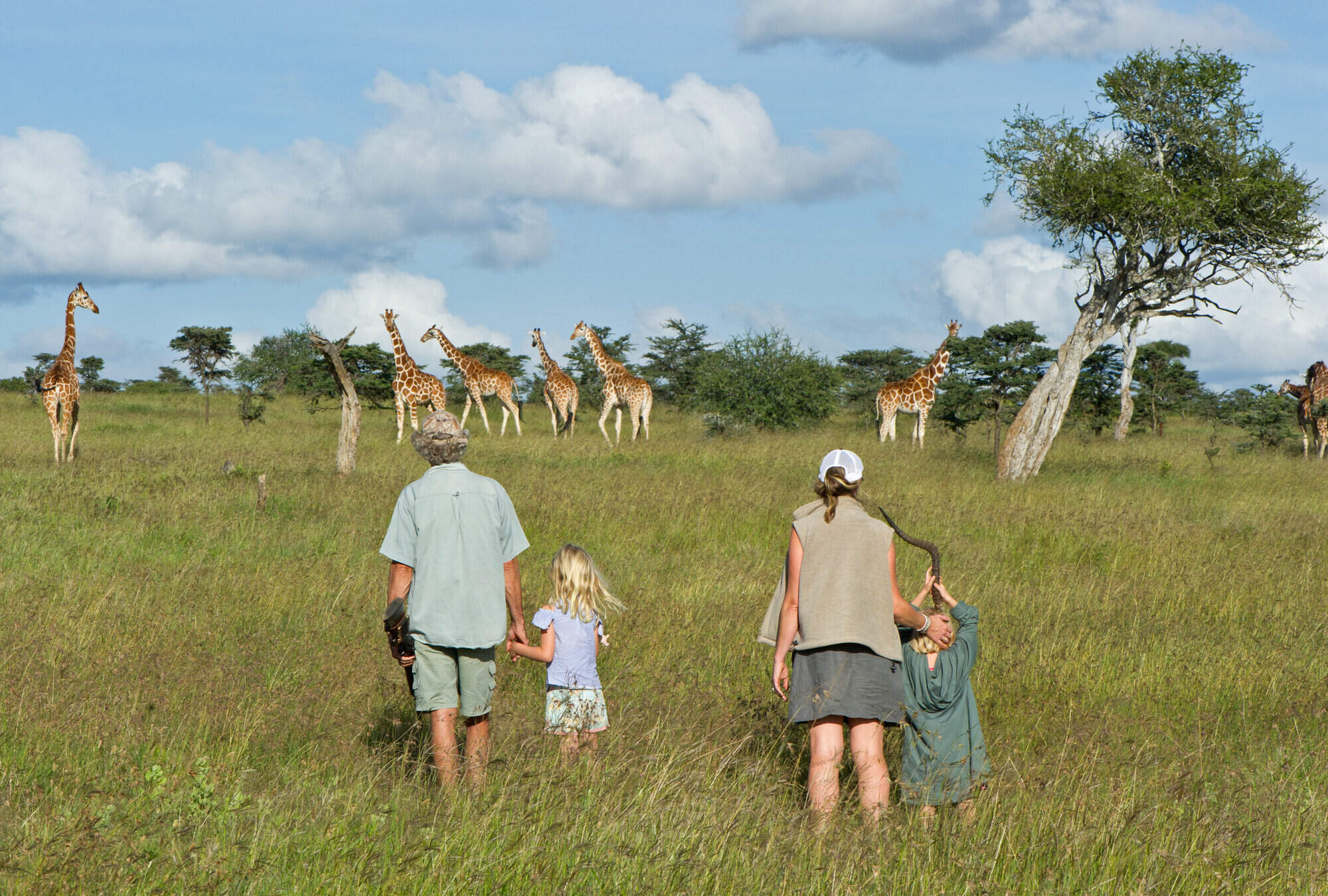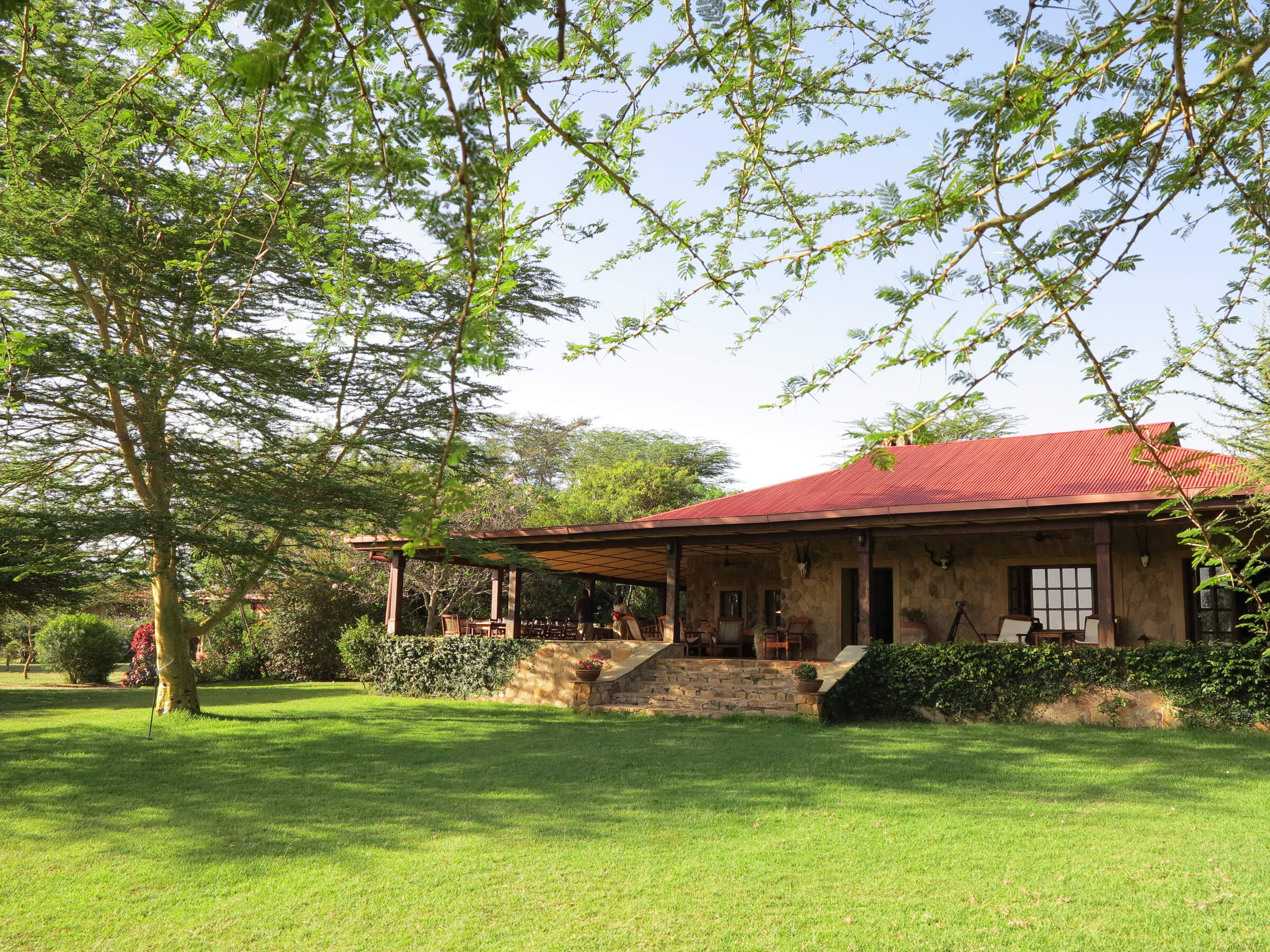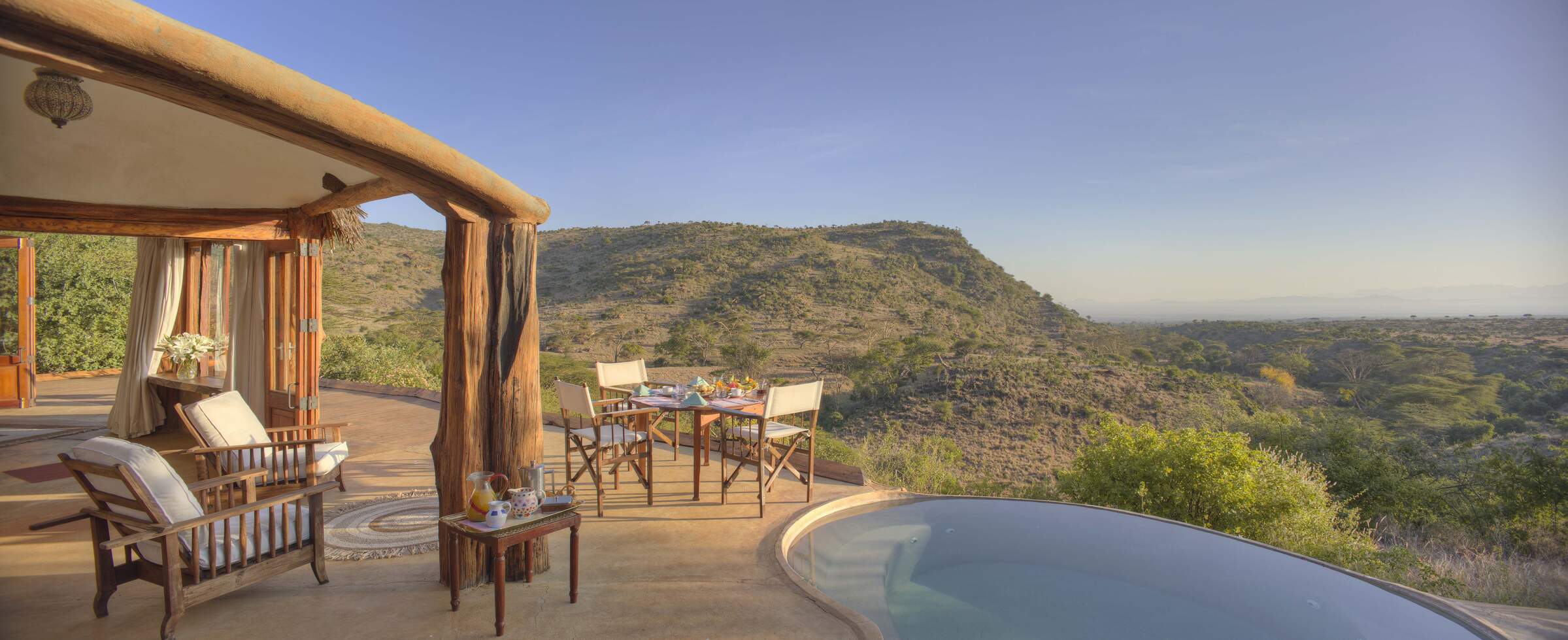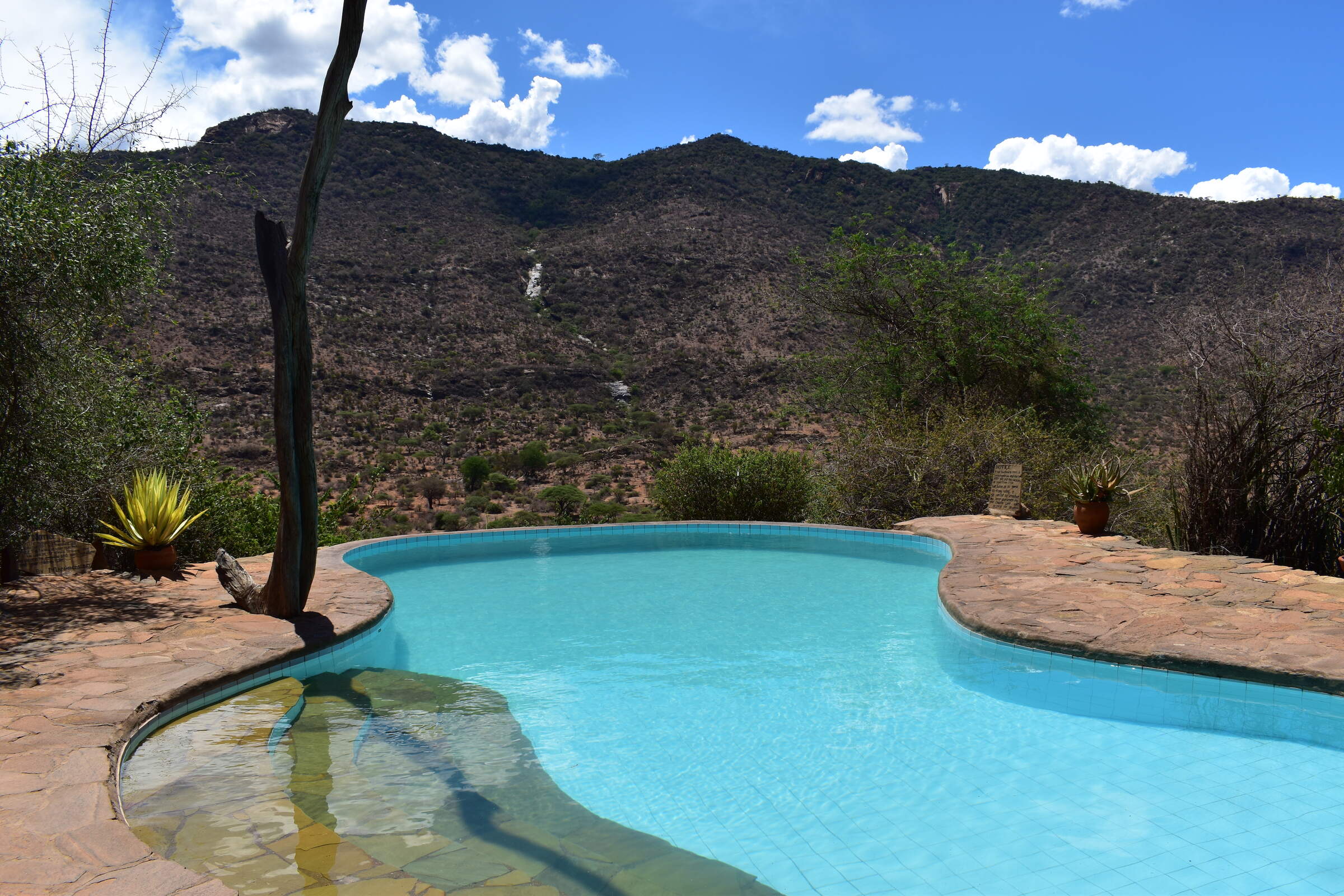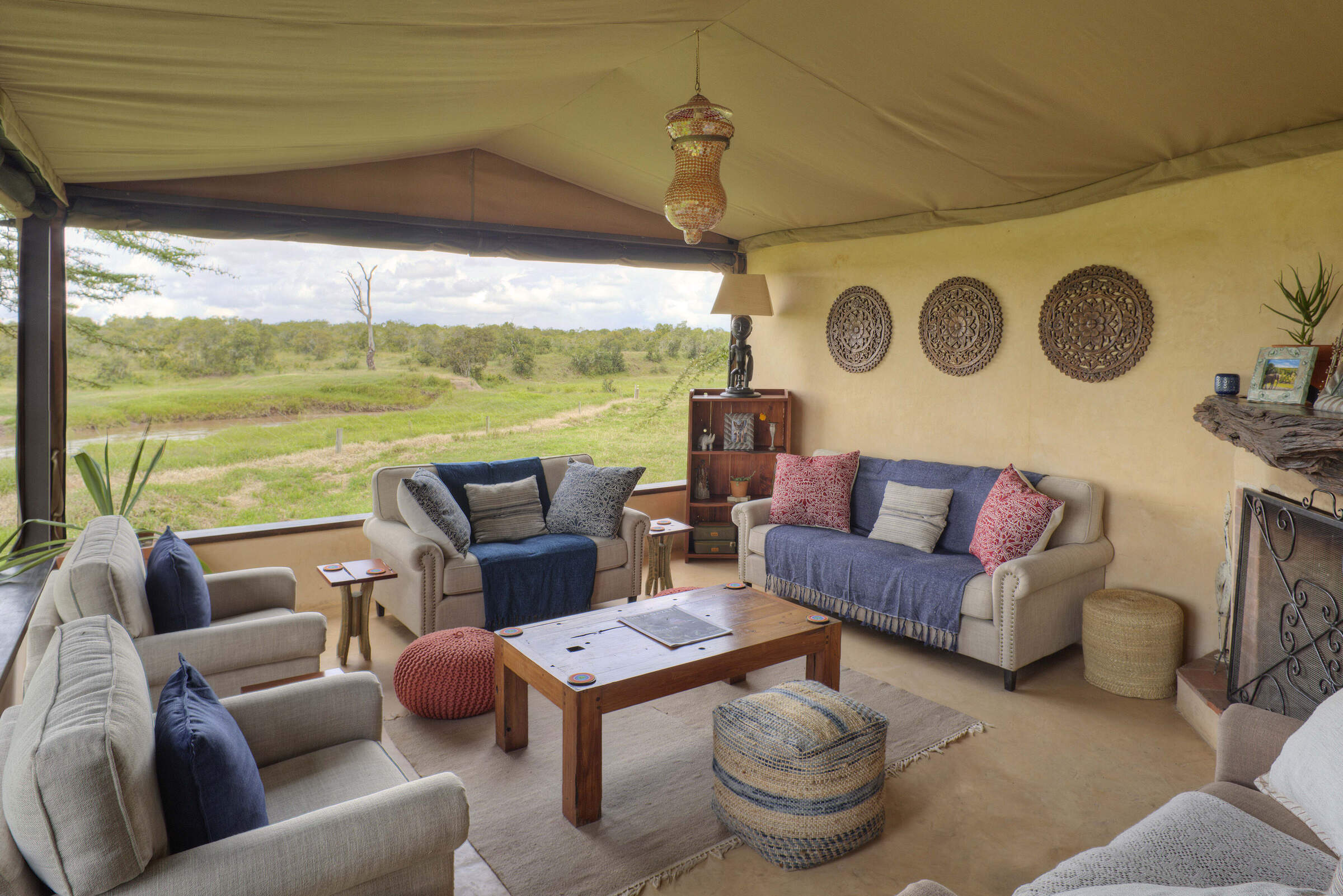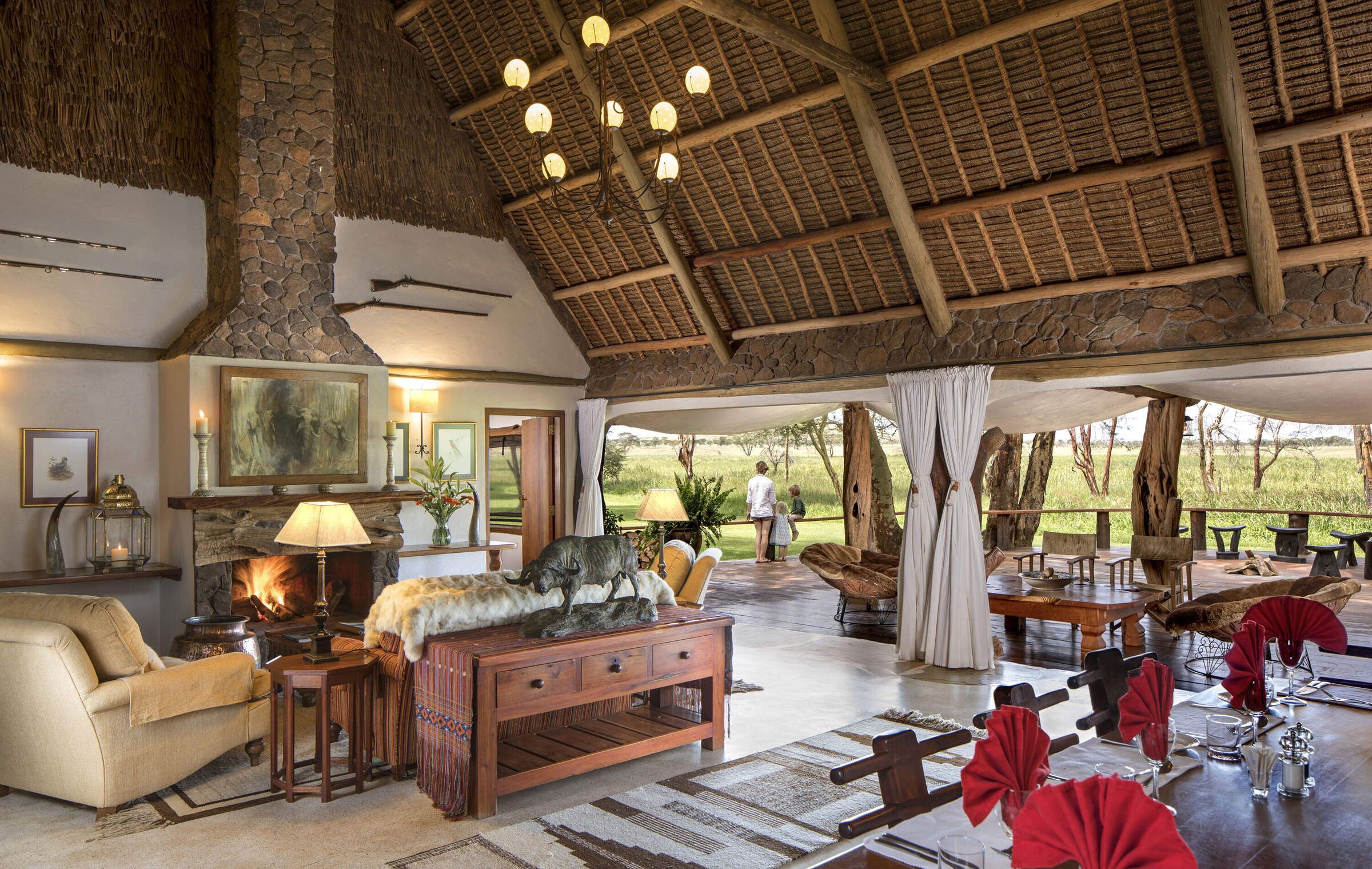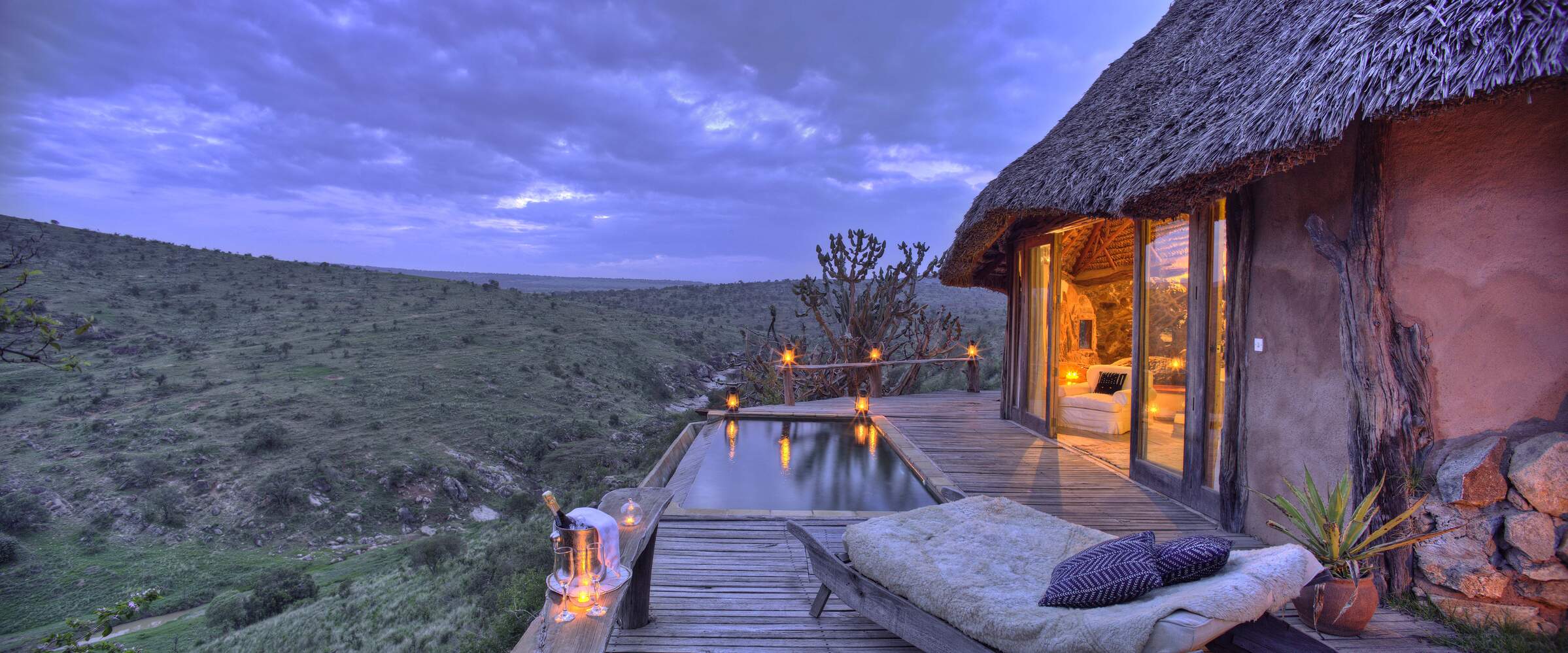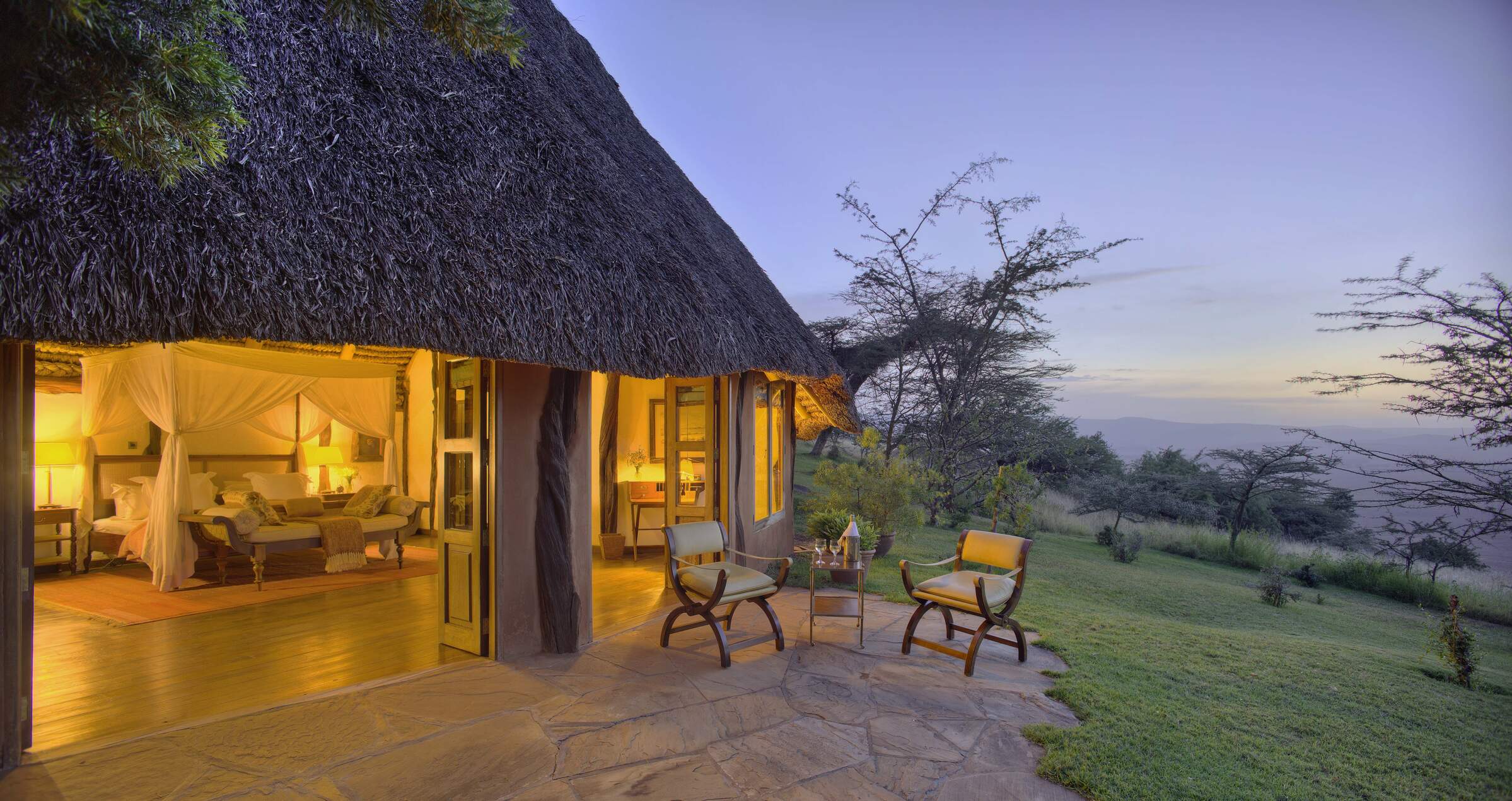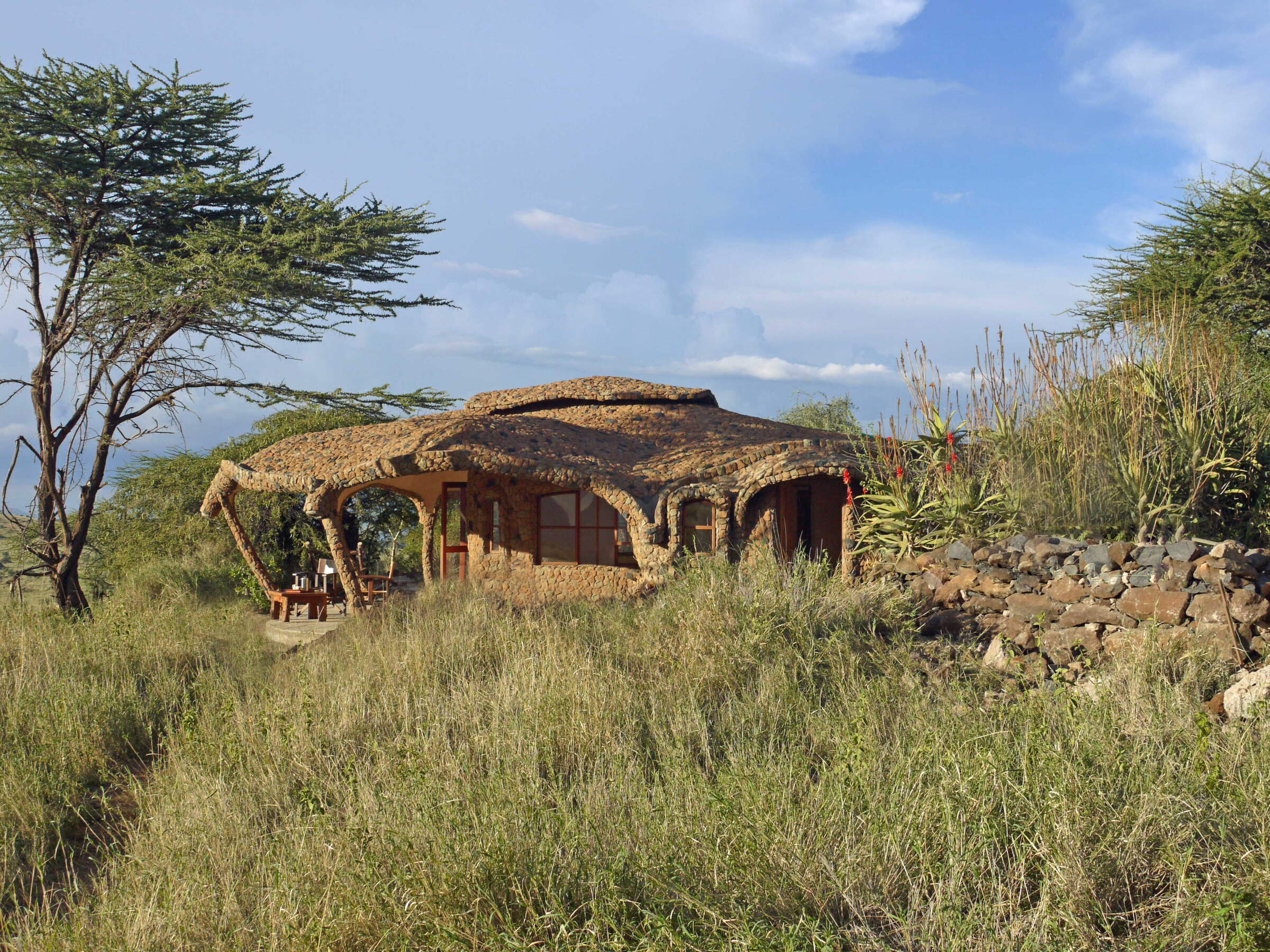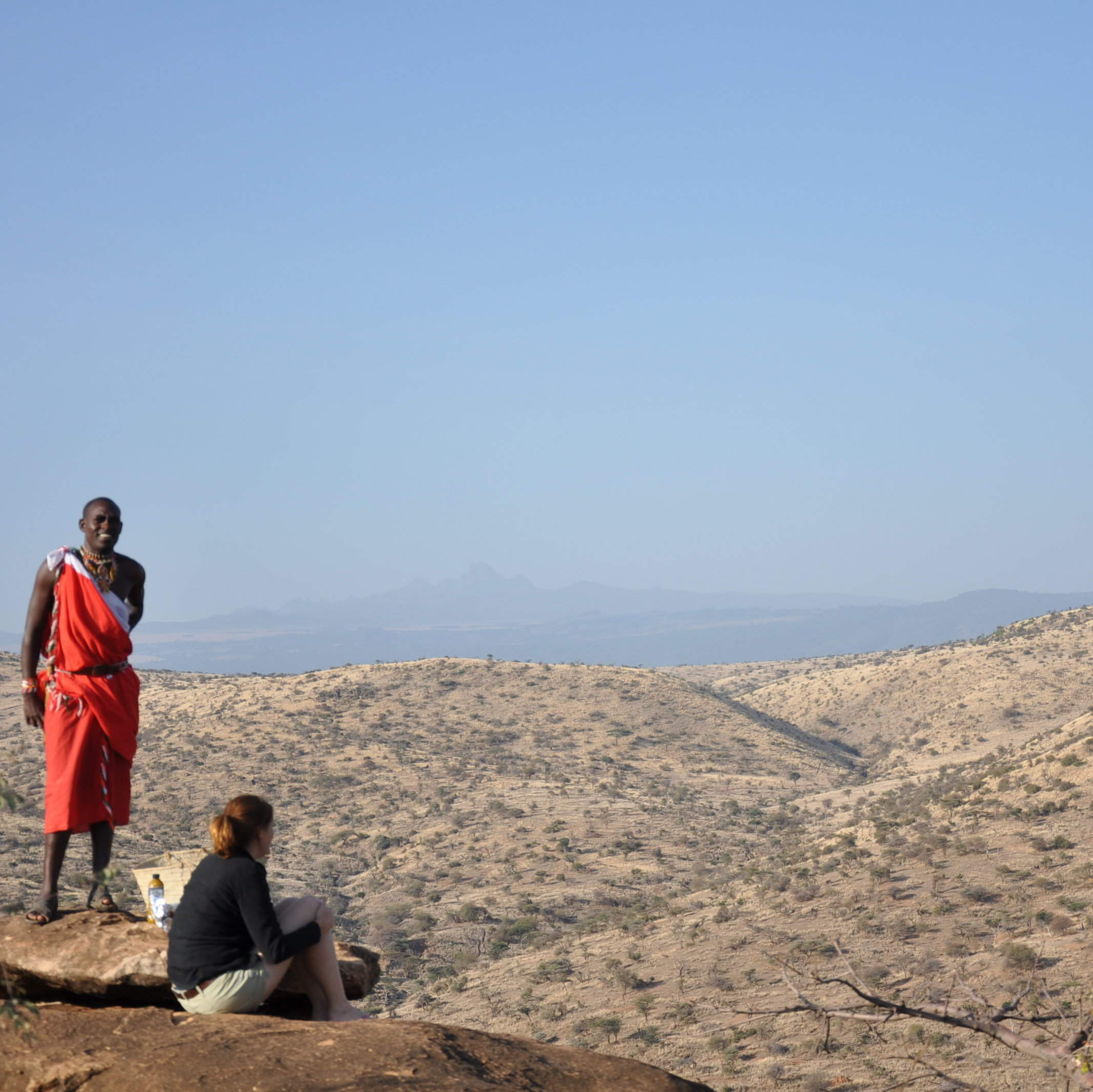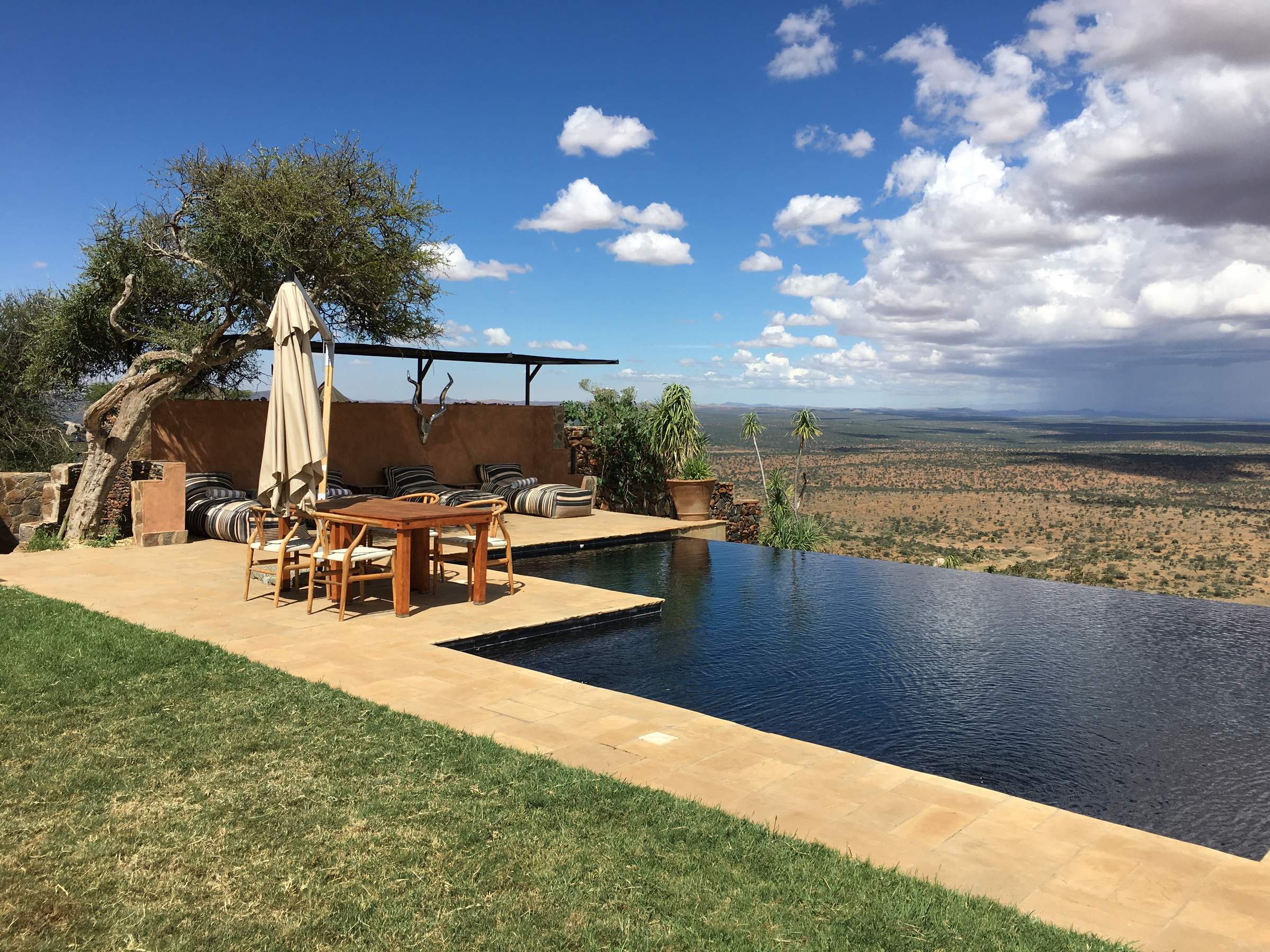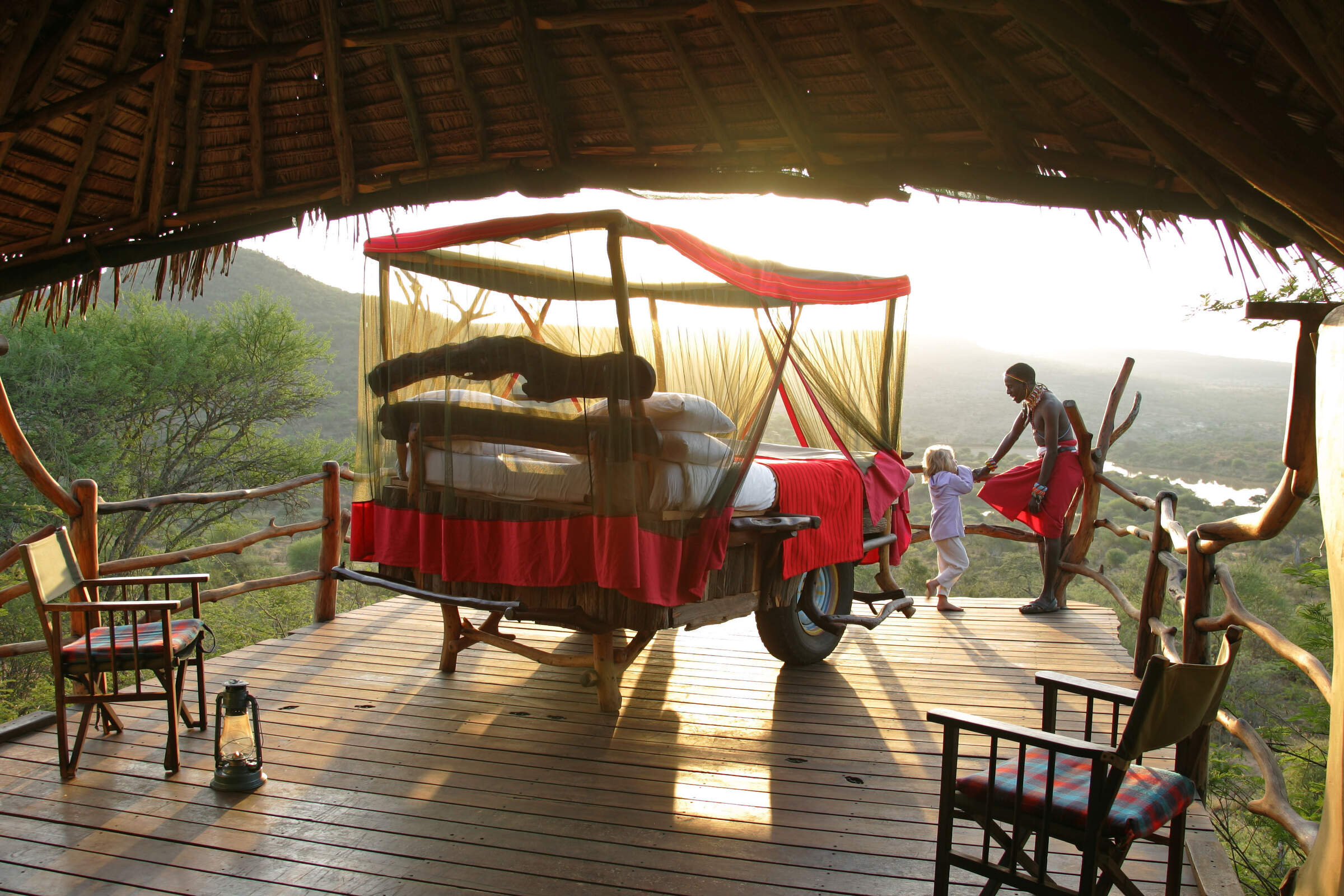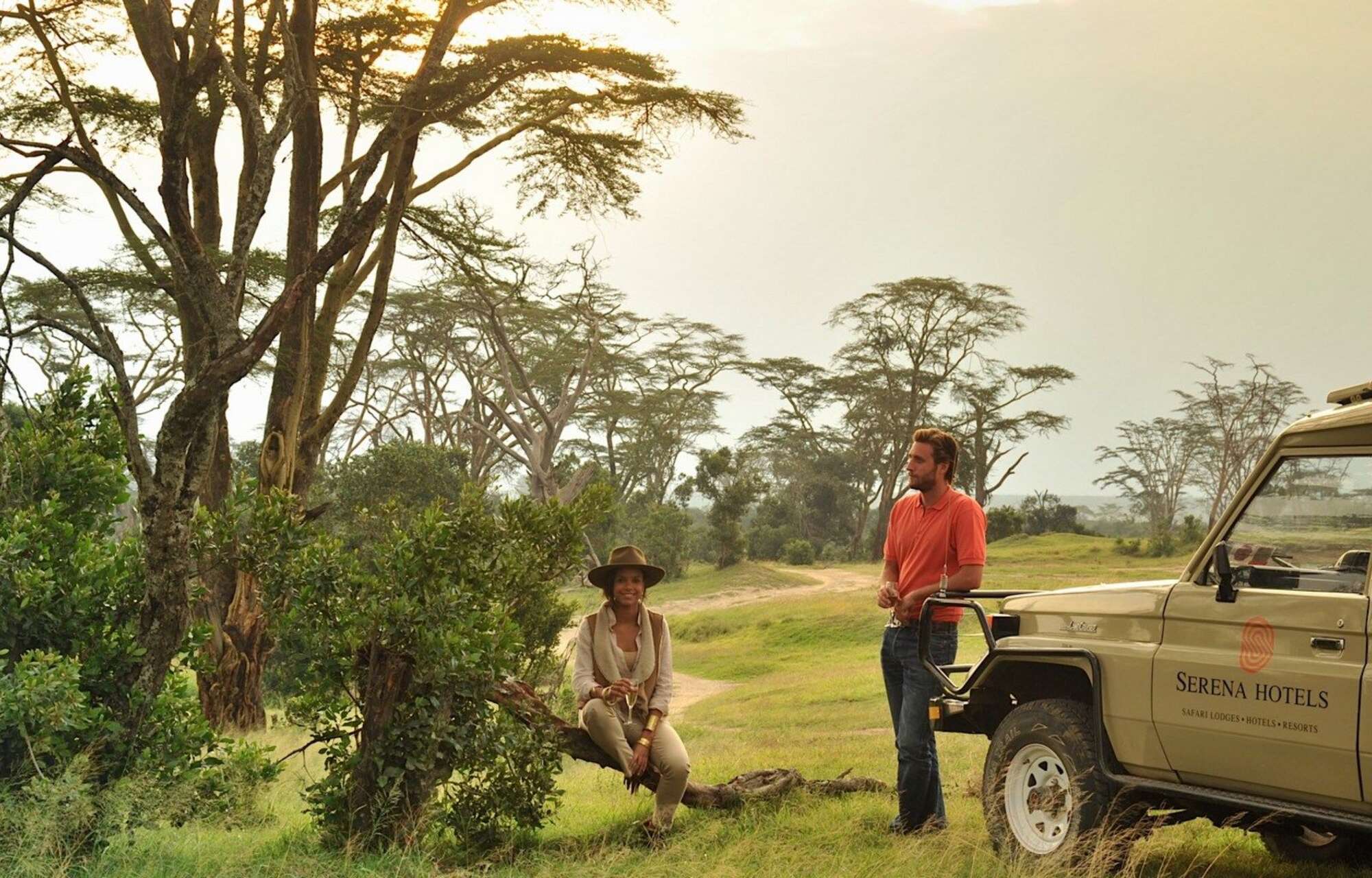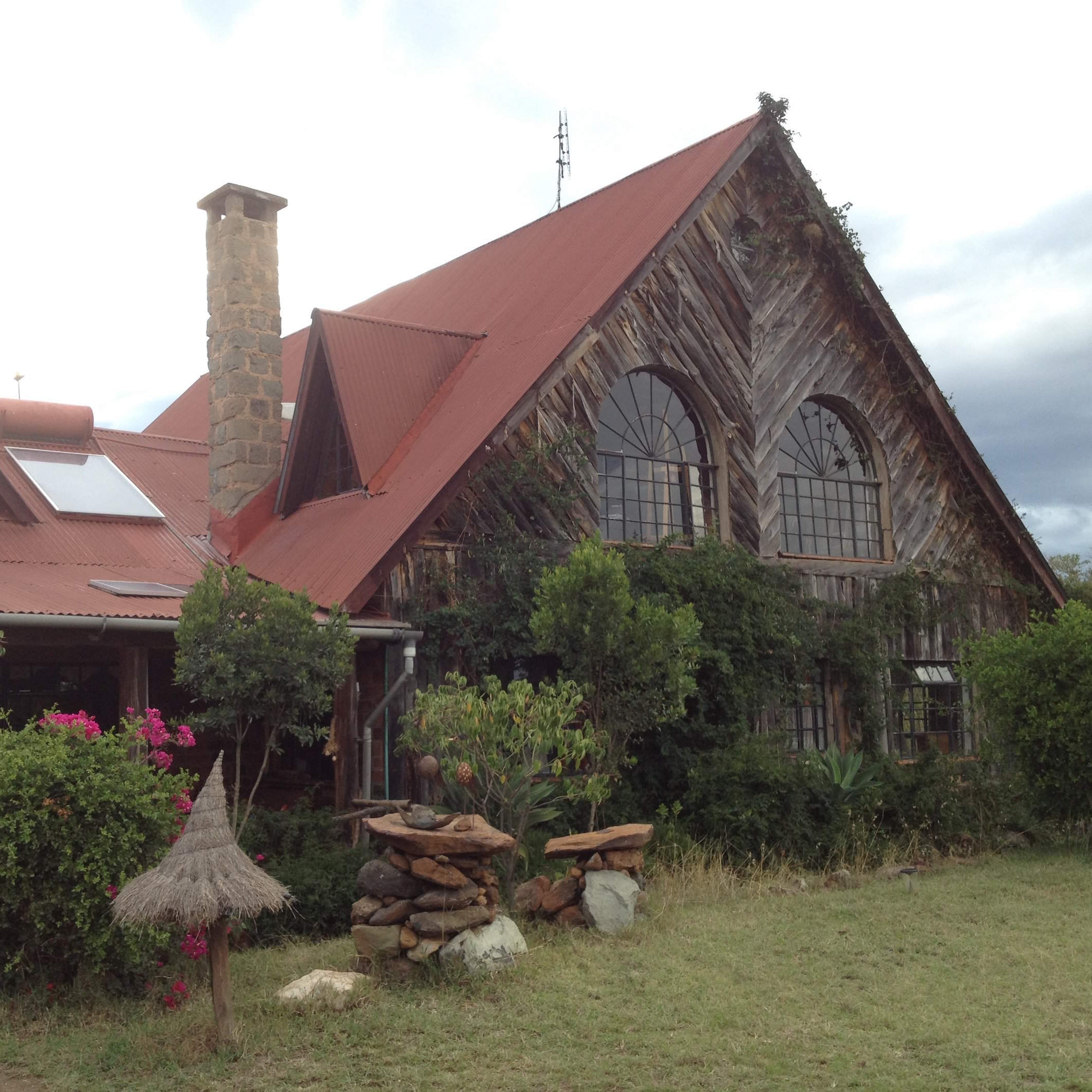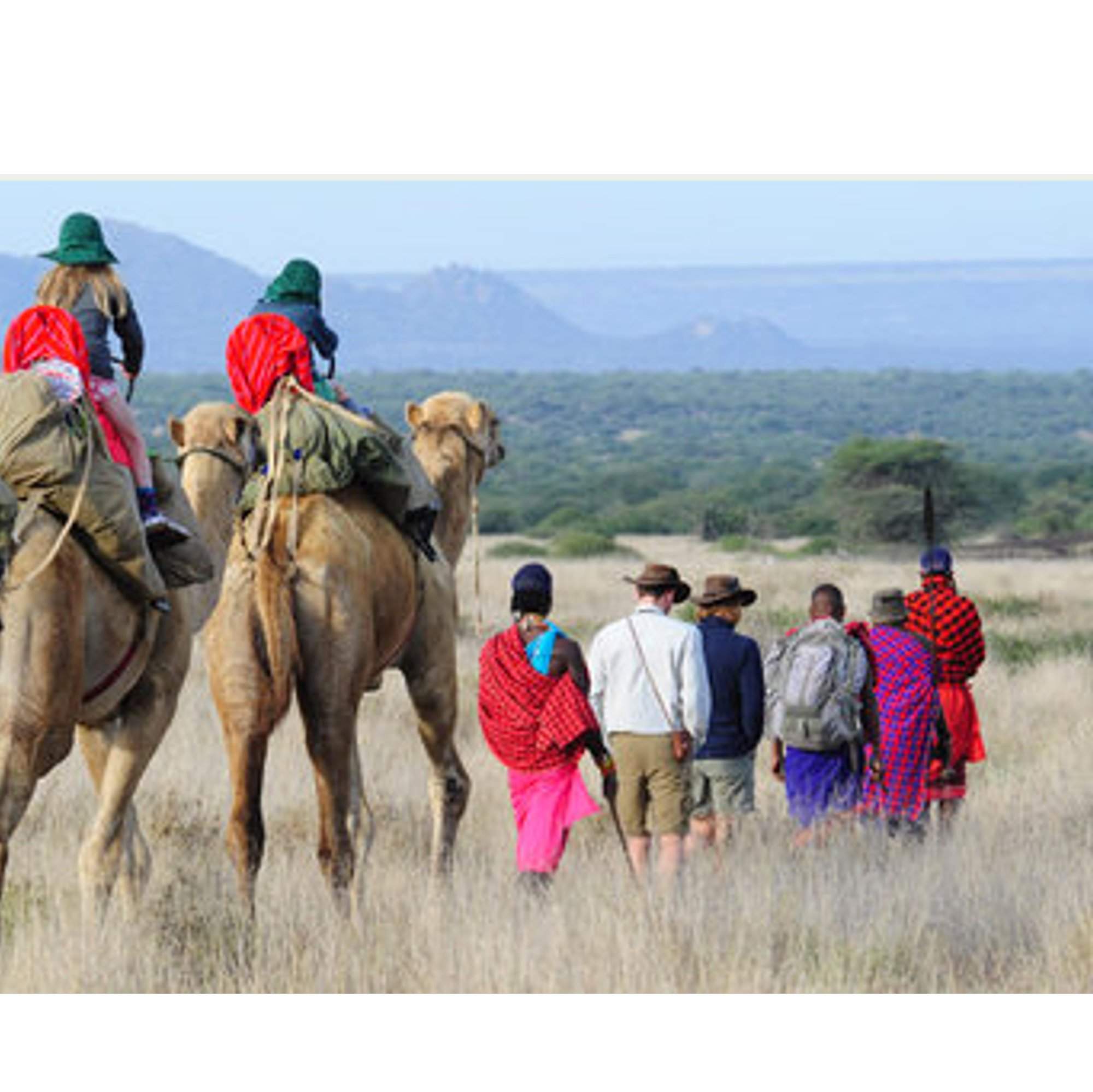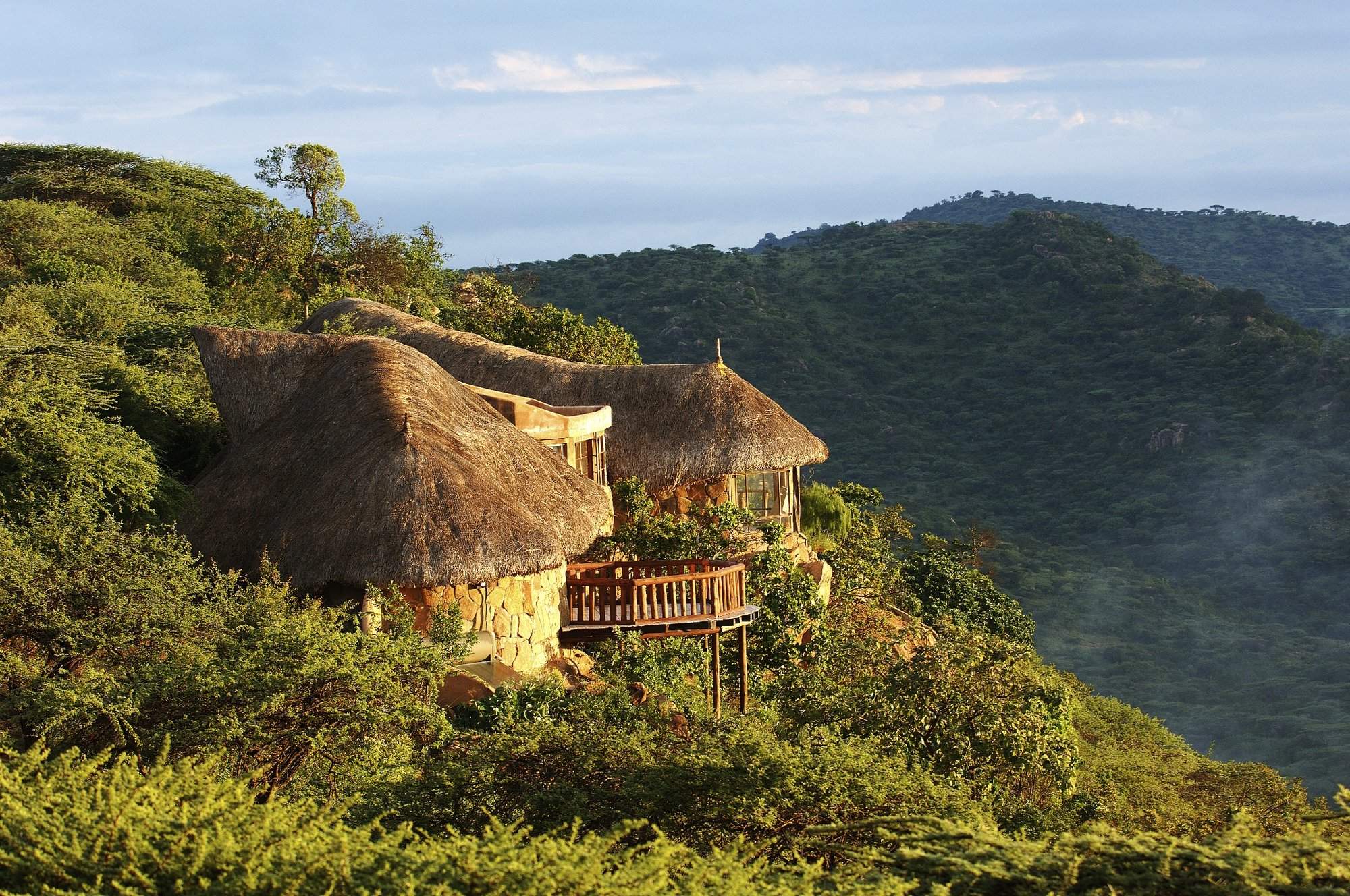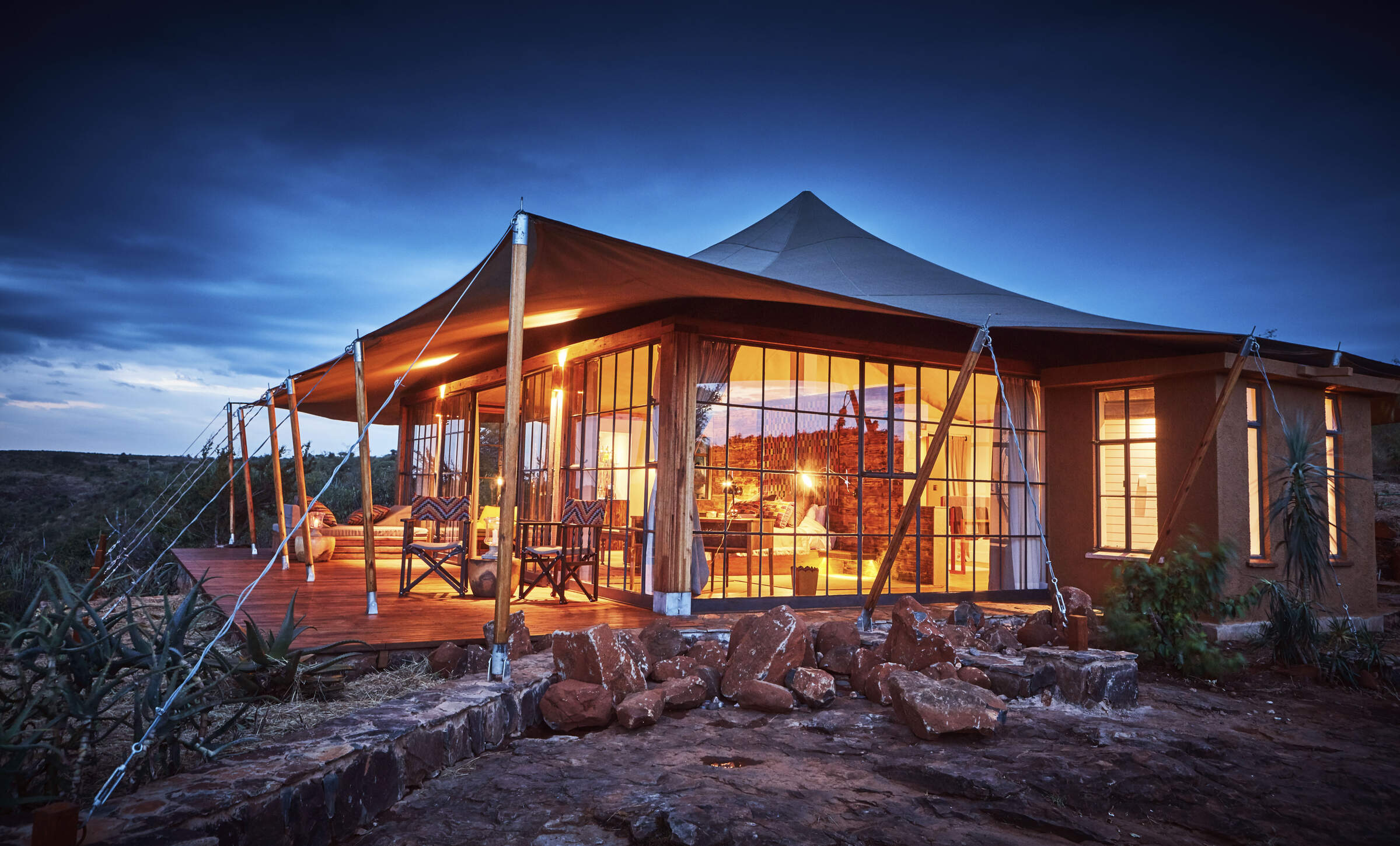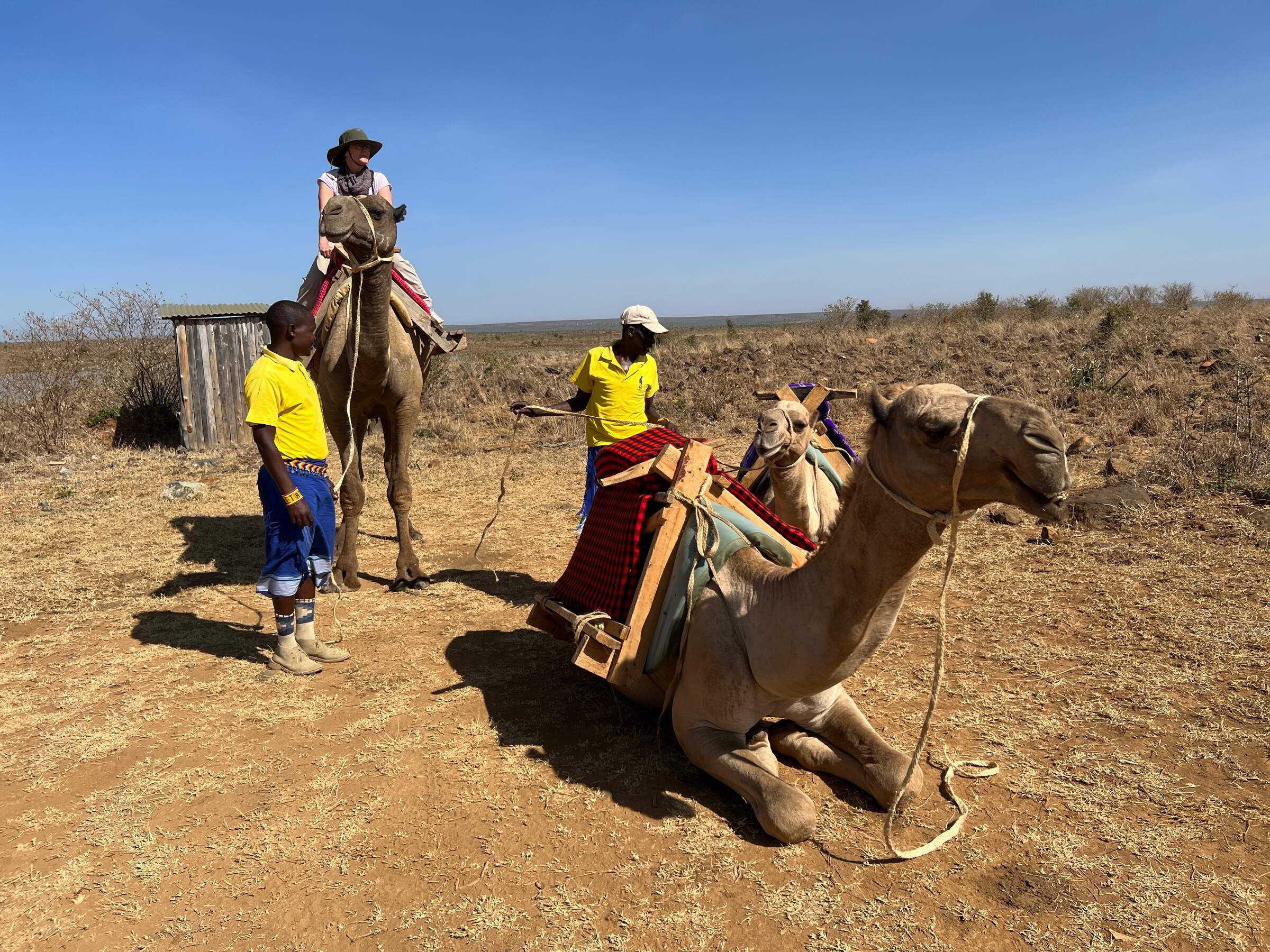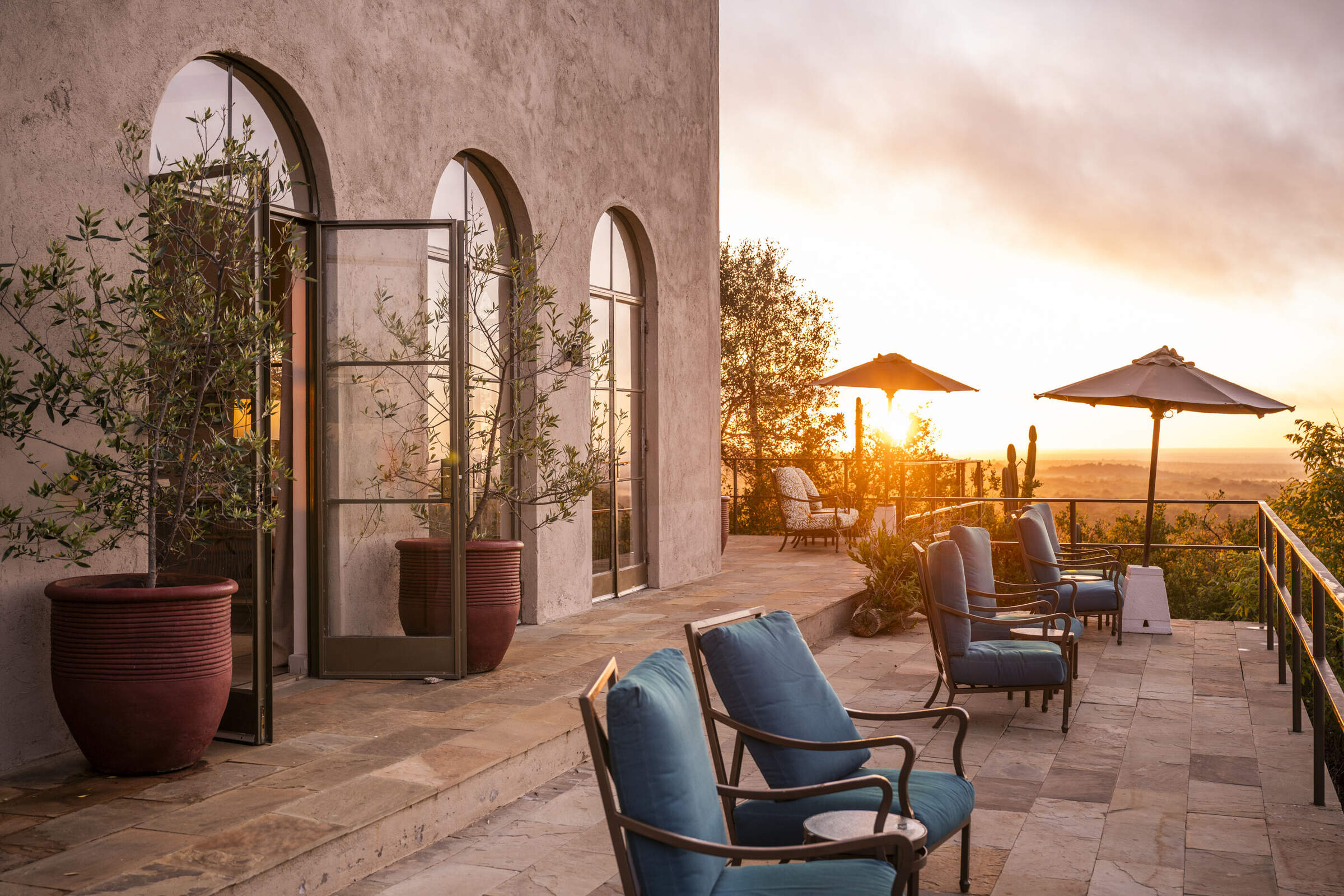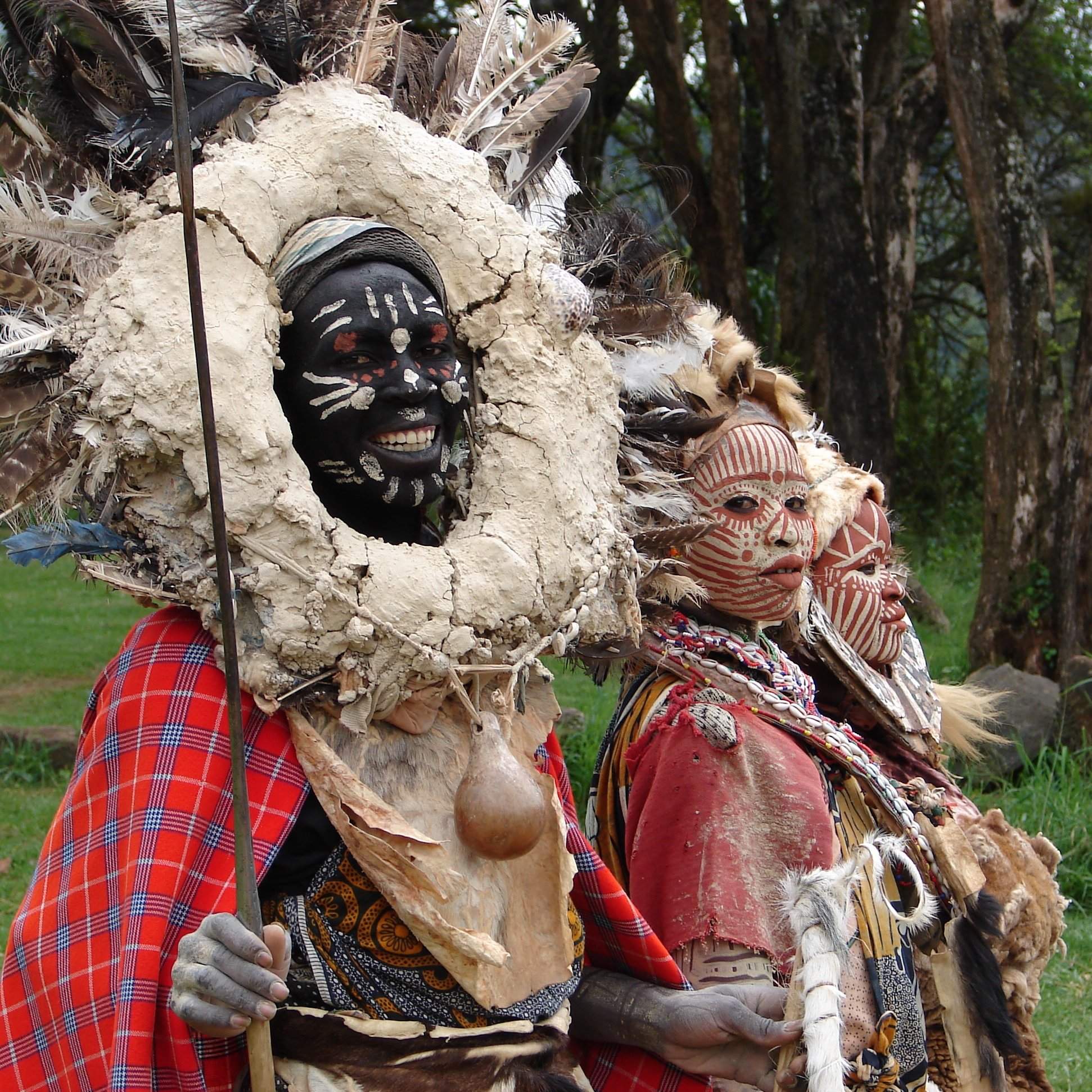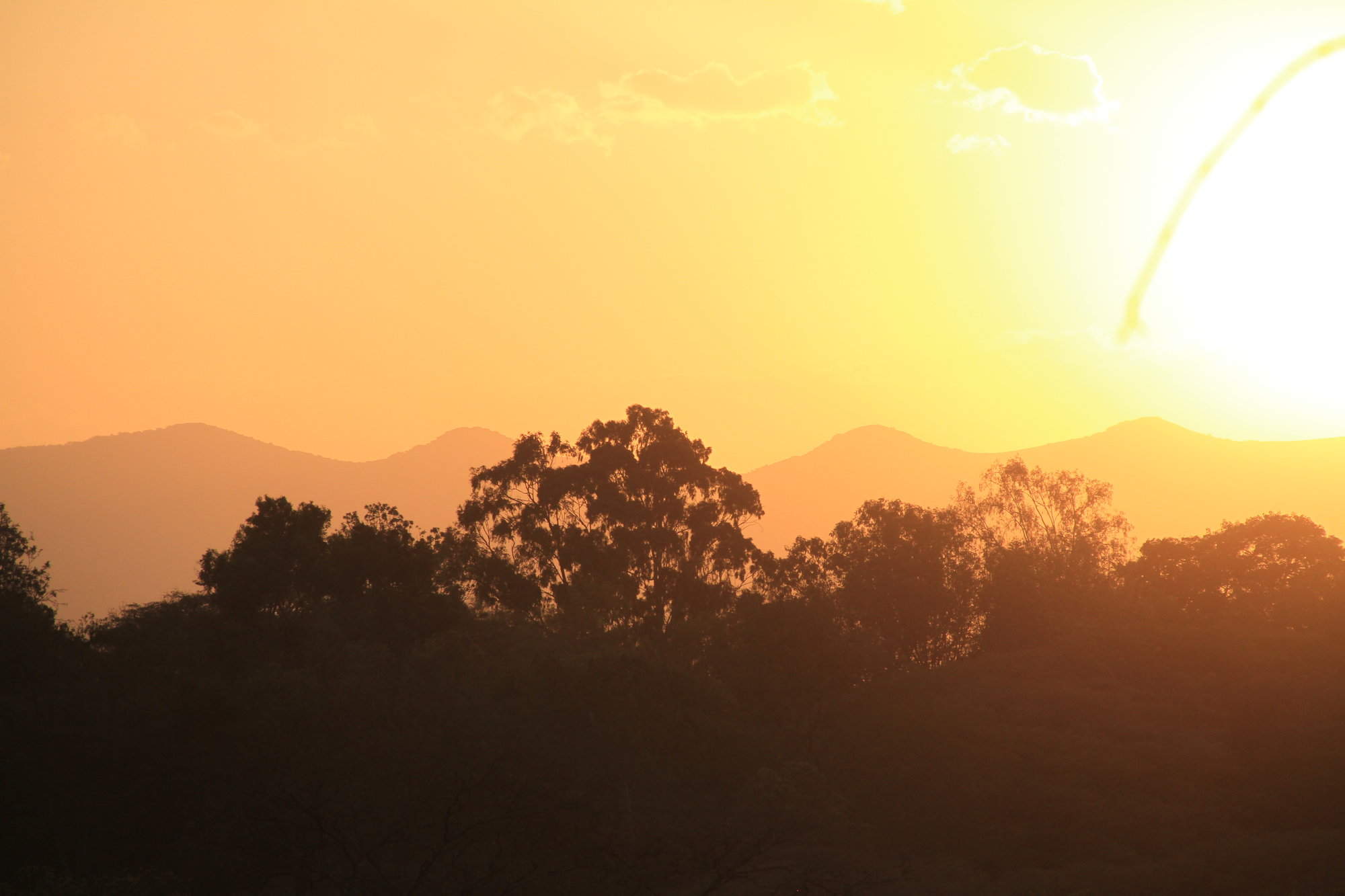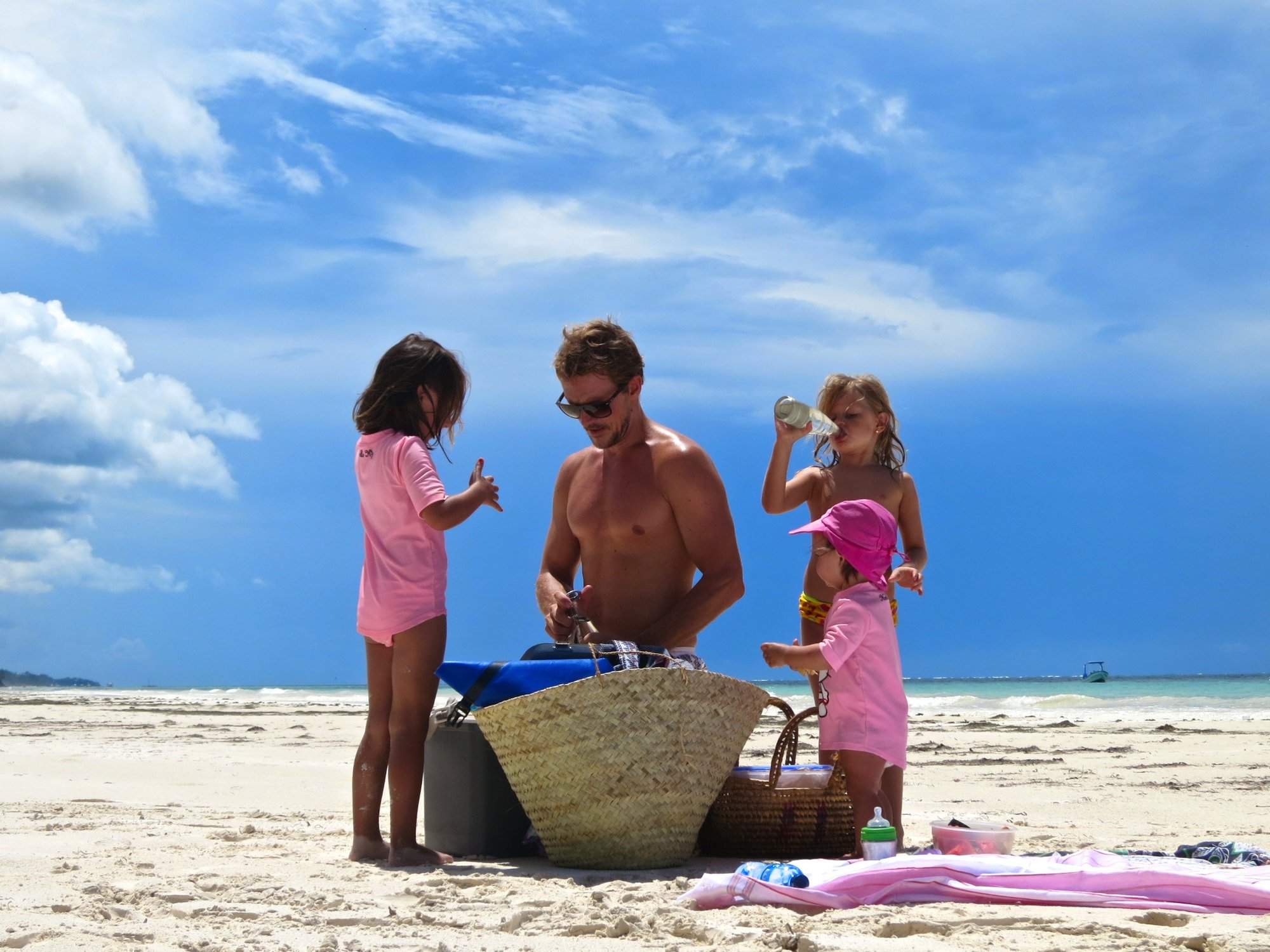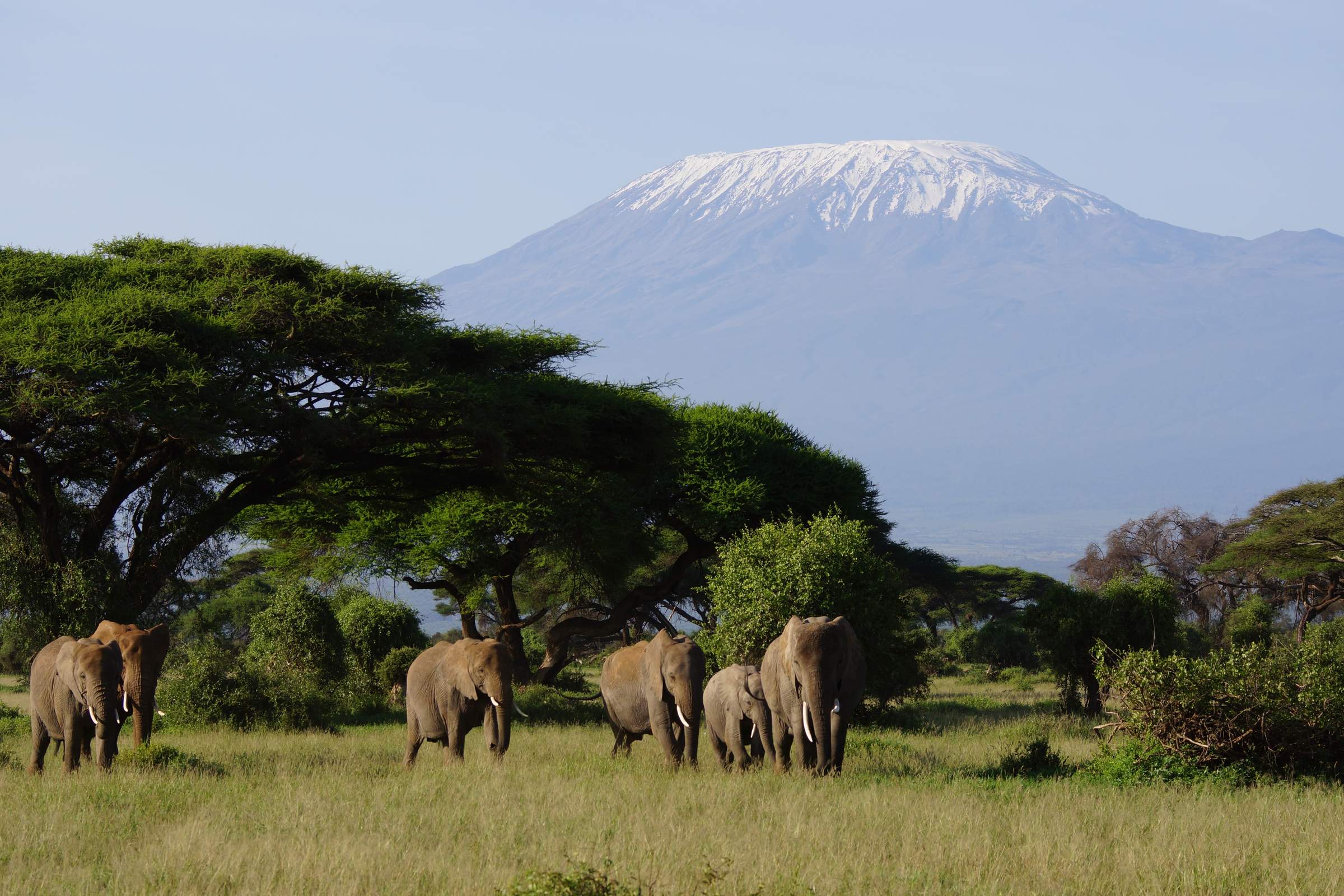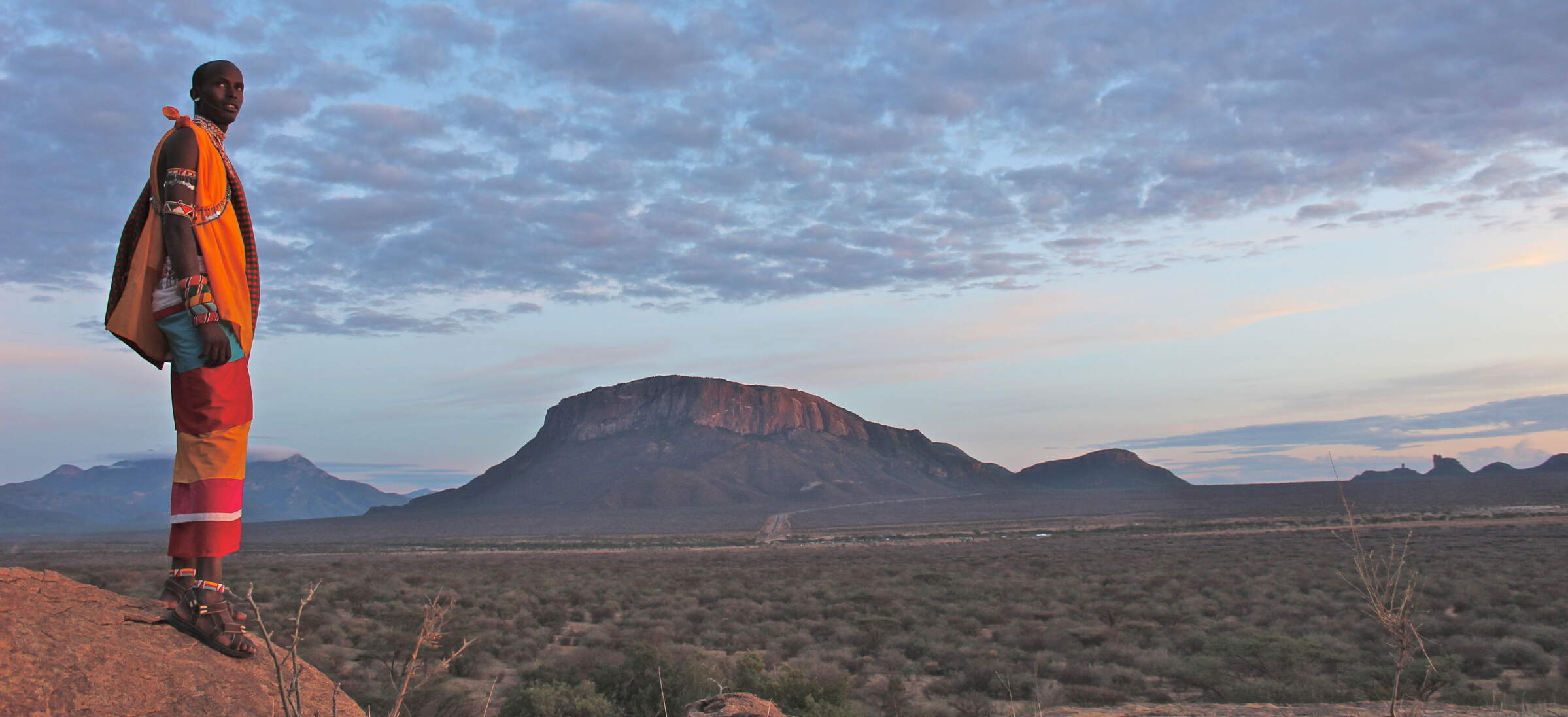Porini Rhino Camp: Our full report
Porini Rhino Camp is situated in the quiet western side of the Ol Pejeta Conservancy – a great base from ...
... which to see the rhinos after which the camp is named. With no other camps around it is a relatively simple and traditional tented camp. It aims to have a very low impact on the environment and employs a mix of local people and members of the Selenkay Maasai community from southern Kenya.Porini Rhino Camp is owned by the same team that is behind Porini Lion Camp, Porini Mara Camp and Porini Amboseli. All the camps are similar in their simple tented approach.
The Ol Pejeta Conservancy is 364km² of protected land, sitting in the shadow of Mount Kenya. This is a great area for people keen to see black and white rhino, which are both comparatively numerous here. There is also the chance to visit the rhino sanctuary, which is home to the last two remaining Northern White Rhino in the world – one of the two subspecies of this rhino (the other being the southern white rhino).
Right by the camp is a seasonal stream and a salt lick – spread with additional salt on a weekly basis, to attract local wildlife. It really works and during our last stay at the camp in September 2016, we sat and watched giraffe, impala, warthog and zebra just from the main area.
Porini Rhino's central area consists of a main mess tent, with a dining table for communal meals, and chunky wooden-framed seating. The colours and style are very rustic with lots of oranges, browns and greens, in keeping with the natural surroundings. Tea and coffee are available here throughout the day and there is always a member of the team on hand to assist you.
In front of the main tent is a veranda with some more seating set out around coffee tables, and a small campfire, where guests enjoy a drink before dinner.
The seven tented rooms at Porini Rhino Camp are spaced nicely apart and face out onto the plains and a small watering hole. Each is fully constructed of canvas, with a vinyl floor spread with rugs, and has a veranda at the front with a table and chairs. Inside, rugs are spread on the floor and the furniture – including both a double and a single bed, a small writing desk and a luggage stand – is simple and unfussy, lending a slightly homely feel but offering more in the way of practicality than style. It’s worth noting that each tent is configured exactly the same, so for guests sharing a ‘twin’, one will person have a double bed and one will have a single.
When we visited the camp in 2018, we were told that the camp has plans to add a family tent, in time for the dry season in 2019, which would be in-keeping with the other Porini camps in the Maasai Mara. Ask us for the latest on this.
In the en-suite bathroom, separated by a curtain from the main room, you will find a flush toilet, a basin with cold running water and a "safari shower" with hot water brought at a time agreed between you and your tent attendant. Here again, the furniture is of simple wooden construction but it is all very functional and perfectly clean. Toiletries are provided, and the camp offers a full laundry service.
The activities at Porini Rhino Camp are all led by local guides dressed in traditional Maasai attire. Safari drives take place in large 4WD vehicles – mostly Land Rovers – that always have a guide and a spotter. However, the camp will put up to seven guests in a vehicle, so not everyone is always guaranteed a window seat if the camp is full. The vehicles are open-sided, with tarpaulin covers at the rear. The seats and side bars are somewhat low, which can make resting a camera hard without crouching. Bean bags are not always available – ask in advance.
Visits to the rhino sanctuary are at extra cost – currently (in 2018) US$40 per person – but we consider this a must-do activity. It is best booked in advance due to limited visitor numbers. Visitors to the sanctuary are met by a ranger, who takes you into the 160-hectare enclosure by vehicle.
It is also possible to arrange a night drive (on the way back to camp, for an hour), bush breakfasts and visits to a chimpanzee sanctuary on the Ol Pejeta Conservancy. This last isn't for everybody – the chimps are rescued animals kept in huge outdoor enclosures, so it is more of a zoo-like experience – albeit for a good cause.
Although bush walks are also offered at Porini, these are not always accompanied by an armed ranger (Porini's guides are armed only with spears), so we cannot recommend them. The walks take around 45 minutes and often end with cultural displays from the Maasai team of traditions such as spear-throwing – all highly photogenic. A ranger will join only if available.
We found the guides at Porini Rhino camp very eager, though arguably less knowledgeable than guides we have come across elsewhere. We also found their understanding of photography and light was a bit lacking when compared to guides in many of the other camps.
Our view
Porini Rhino suits those who are not after luxury, but are seeking a camp with a low-impact approach that really tries to benefit the local communities and wildlife. Those who buy into this ethos will really enjoy it here as long as their expectations of guiding are modest. The local guides and managers take real pride in what they do and know a lot about local culture and politics – but were not quite as articulate and experienced as those we came across at the other camps in the area.
Geographics
- Location
- Laikipia, Kenya
- Ideal length of stay
- 2–3 nights
- Directions
- There are daily 90-minute flights from Nairobi to Nanyuki Airport. It is then a 53km or two-hour drive to camp. There is a charter airstrip very near to the camp for those who want to avoid the long drive.
- Accessible by
- Fly-and-Transfer
Food & drink
- Usual board basis
- Full Board & Activities
- Food quality
- For a simple camp, the food at Porini was as we expected it to be when we last ate in 2016: hearty, filling but uncomplicated. Fresh ingredients are sourced locally.
Breakfast can either be taken in camp, or you can leave early with a packed breakfast. Either way, expect a selection of continental breakfast items followed by cooked eggs, bacon and sausage. We enjoyed a lovely bush breakfast on the banks of a small river, watching hippos and birds as we ate.
Lunch, a tasty three courses, is usually served outside if weather permits, around one big sociable table. After a rich, chilled avocado soup and bread that was served to the table, we helped ourselves to a buffet that included meatloaf, tomato salsa, egg salad, and tomato and cucumber salad. Pudding was crème caramel followed by tea and coffee.
Dinner is also a communal meal, hosted by the manager. It's a sociable event, kicked off with a warming soup which can be very welcome on cooler winter evenings. We enjoyed the steamy potato soup very much. The main course is served to the table with the staff bringing round dishes such as peppered steak, cauliflower cheese, broccoli and mashed potatoes. Pudding was a rich chocolate fondant with cream, again followed by tea and coffee. - Dining style
- Group Meals
- Dining locations
- Indoor and Outdoor Dining
- Further dining info, including room service
- Room service is possible at Porini Rhino Camp, but advance notice is needed as there are no phones or radios in the tents.
- Drinks included
- All house drinks are included at Porini Rhino Camp, although they don’t offer any premium tipples or Champagne.
Children
- Attitude towards children
- Porini Rhino Camp is happy to take children over seven years old.
- Property’s age restrictions
- There is no specific minimum age at Porini Rhino Camp, though in practice it would be 3+.
- Special activities & services
- There are no special activities for children, but the Maasai staff will teach children some of their warrior skills such as spear throwing.
- Equipment
- None.
- Generally recommended for children
- This is a low-key and unpretentious camp and we would expect families to feel comfortable here.
- Notes
- It is wild and unfenced, so parents must keep a close eye on their children, who are their responsibility at all times.
Our travellers’ wildlife sightings from Porini Rhino Camp
Since mid-2018, many of our travellers who stayed at Porini Rhino Camp have kindly recorded their wildlife sightings and shared them with us. The results are below. Click an animal to see more, and here to see more on our methodology.

100% success

100% success

100% success

100% success

100% success

100% success

100% success

75% success

75% success

25% success

25% success

25% success

0% success

0% success

0% success

0% success
Communications
- Power supply notes
- Porini Rhino Camp runs entirely off solar power, which charges batteries and stores energy as a back-up in case there hasn't been sun for a while. There are lights in the tents, but no charging sockets; camera batteries and the like can be charged in the manager's office tent. The fridge is propane-powered.
- Communications
- There is intermittent Safaricom cellphone reception around Porini Rhino Camp, and limited email in the office for use in an emergency. Tent #1 has the best coverage.
- TV & radio
- TV isn't available in camp (though there is a TV at the Kamok abbatoir).
- Water supply
- Transported in
- Water supply notes
- Cold water is plumbed to the washbasins and loos in each tent. Three 5000-litre tanks store it. Large plastic barrels of drinking water are used to provide water in flasks for the guest tents. Ordinary small, sealed bottles of drinking water are available for those who prefer to be able to break the seal.
Health & safety
- Malarial protection recommended
- Yes
- Medical care
- Porini Rhino Camp has first-aid kits in camp and in each of the vehicles, and most members of staff are first-aid trained. In case of emergency, they have links with flying doctors. There is a charter airstrip about five minutes away at Kamok.
- Dangerous animals
- High Risk
- Security measures
- There are Maasai warriors at the camp who act as guards to escort guests around camp, by day and night.
- Fire safety
- There are fire extinguishers dotted around Porini Rhino Camp, and each of the tents has both an extinguisher and a sand bucket. Staff fire-training is done when the camp is closed.
Activities
4WD Safari
Birdwatching
Guided walking safari
Night drive
Private activities
Extras
- Disabled access
- Not Possible
- Laundry facilities
- A full laundry service is offered, but they do not accept underwear.
- Money
- Porini Rhino Camp has no safe. They cannot offer any kind of currency exchange.
- Accepted payment on location
- Cash is accepted in US dollars, British pounds, euros and Kenyan shillings, but Porini Rhino Camp cannot accept credit cards. In practice, they don't have any expectation of cash exchanges being necessary as there is nothing to pay for.
Other lodges in Laikipia
Alternative places to stay in this same area.

